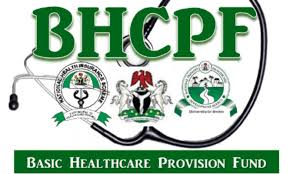
As Nigeria rolls out the revised Basic Healthcare Provision Fund (BHCPF) Guideline 2.0, the Nigerian Government has charged State Oversight Committees to ensure strict transparency and efficient use of health funds across all levels.
The Coordinating Minister of Health and Social Welfare, Ali Pate, said the updated guideline was developed to strengthen performance-based implementation, accountability, and financial visibility in managing healthcare funds.
Speaking at the onboarding workshop for State Oversight Committees in the South-West zone, held in Lagos, the Secretary of the Ministerial Oversight Committee, Oritseweyimi Ogbe, said the Federal Government is determined to ensure that “every naira spent under the BHCPF delivers measurable results.”
He explained that the BHCPF Guideline 2.0 introduces stricter monitoring mechanisms, including deploying performance and financial management officers to all local governments, digital tracking of disbursements, and involving civil society organisations in monitoring fund utilisation.
To enhance oversight, Ogbe disclosed that the ministry had signed a partnership with the Independent Corrupt Practices and Other Related Offences Commission (ICPC) to prevent fund mismanagement and improve accountability.
“The new framework ensures that the system works better, the money is traceable, and citizens truly benefit from government investment in primary healthcare,” he said.
The Basic Healthcare Provision Fund, established under the National Health Act of 2014, provides sustainable financing for basic health services, especially at the primary care level. So far, 8,309 Primary Health Centres (PHCs) benefit from the fund, with plans to expand coverage to 17,600 PHCs by 2027 under the Presidential Commitment for Health.
Ogbe added that to promote transparency, details of BHCPF disbursements are now being published in national newspapers and on ministry websites for public scrutiny.
In his remarks, Lagos State Commissioner for Health, Prof. Akin Abayomi, said the new guideline would strengthen governance and speed up health service delivery by addressing bureaucratic delays in fund management. He highlighted insurance, primary healthcare, and emergency preparedness as the three pillars of the BHCPF, each addressing key weaknesses in Nigeria’s health system.
Also speaking, the National Coordinator of the Sector-Wide Approach Coordination Office, Dr. Muntaqa Umar-Sadiq, reaffirmed the Federal Government’s commitment to transparency under the new BHCPF framework. Represented by Dr. Ashiru Abubakar, he described the revised guideline as a “renewed social contract between government and citizens,” noting that full disclosure of BHCPF allocations since 2019 would empower civil society to demand accountability.



